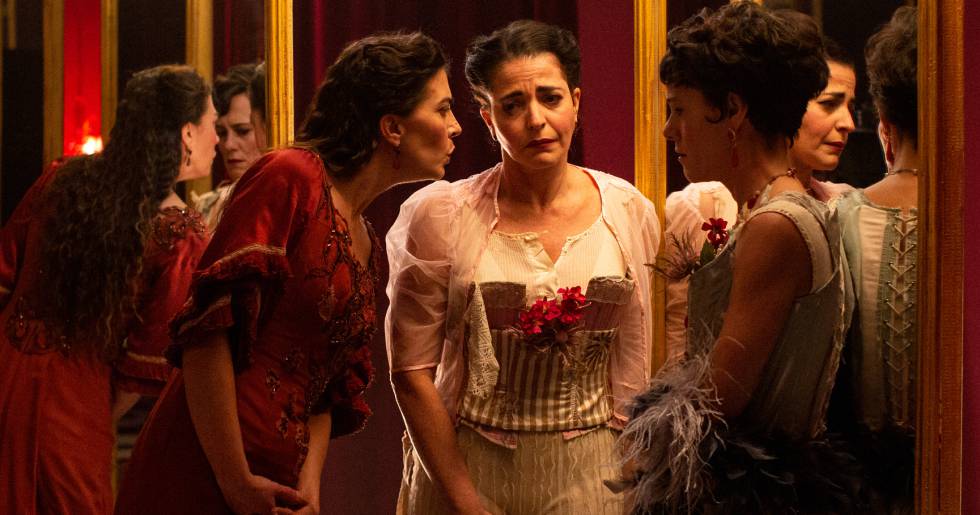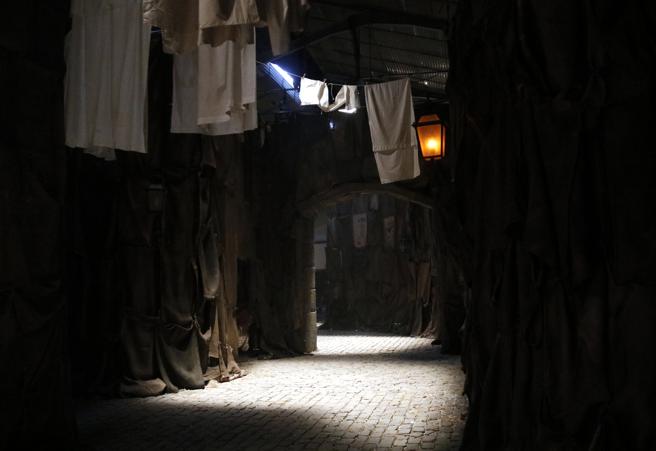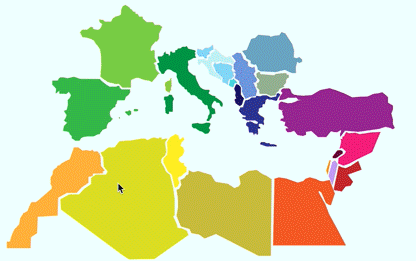January 18th was the final wrap for La vampira de Barcelona. With this feature film Lluís Danés, a Spanish / Catalan director best known for documentaries such as Llach: La revolta permanente (2006), is now trying his hand at drama.
He and his crew have been immersed in a period drama about a Barcelona prostitute, Enriqueta Martí, accused of a series of crimes at the beginning of the 20th century. Nora Navas (Pain & Glory 2019, Pa negre 2010) plays Martí. Alongside her are Roger Casamajor (Pa negre 2010), Bruna Cusí (Estiu1993, 2017) and Sergi López (El laberinto del fauno, 2006).

The production team and crew spent a month working in the industrial complex in Martorell, north of Barcelona.
A 5,000m2 set was built recreating the back-alleys and buildings of the Catalan capital to capture the dreamlike quality the director wanted to bring to the scenes. In fact he wanted to mingle reality and dream, so he had the streets paved with real cobblestones while the walls of the buildings were made of fabric and old bags. Design department created various sets in the warehouse / studio, including a room full of mirrors which becomes a brothel for the camera. Lluís Danés confronts modern, brightly-lit Barcelona with the slum-like district of Raval where Enriqueta lived.
The care lavished on the set makes it almost one of the film’s characters. Danés also mixes colour and monochrome images. They add a rich texture to what the director has described as “a sort of dark Gothic tale with touches of thriller and magic.”

The Enriqueta Martí affair broke in 1912, three years after a “tragic week” of clashes between workers and the army. In this context, as the synopsis says, “two cities coexisted side by side: one bourgeois and forward-looking, the other sordid and downright filthy. The disappearance of Teresa Guitart, daughter of a wealthy family, shocked the whole country, and the police identified a suspect: Enriqueta Martí, nicknamed “the vampire of the Raval”. Journalist Sebastià Comas descends into the neighbourhood’s lower depths of labyrinthine streets, brothels and hidden secrets, knowing this is where he will discover the truth about the horrible murders of children Martí is accused of. Indeed he soon discovers that there is a hidden elite doing everything it can to hide its vices… whatever the cost.”
For the director, the film creates echoes of all child exploitation.
Although a morbid legend surrounds the memory of Enriqueta Martí, the film reveals her innocence. Elsa Plaza’s 2009 book El suelo bajo los pies came to a similar conclusion, the writer developing the idea that Martí was used as a cover for a paedophile network involving the city’s wealthy elites. “Unfortunately,” says director Lluís Danés, “this film could be set at any time, in any society. Paedophilia and the abuse of the weakest are universal.” So the story of Enriqueta Martí is not about some monstrous criminal. “Monsters do exist” admits Danés, “but they are not the ones we are told about. They are much more frightening – because they are real. When the government has allies like the police or the press, it can be absolutely destructive.”
Post-production work has just started, the film is expected in cinemas this autumn.
Sources :
http://www.allocine.fr
https://cineuropa.org
https://www.elperiodico.com
https://www.lavanguardia.com
https://www.imdb.com








